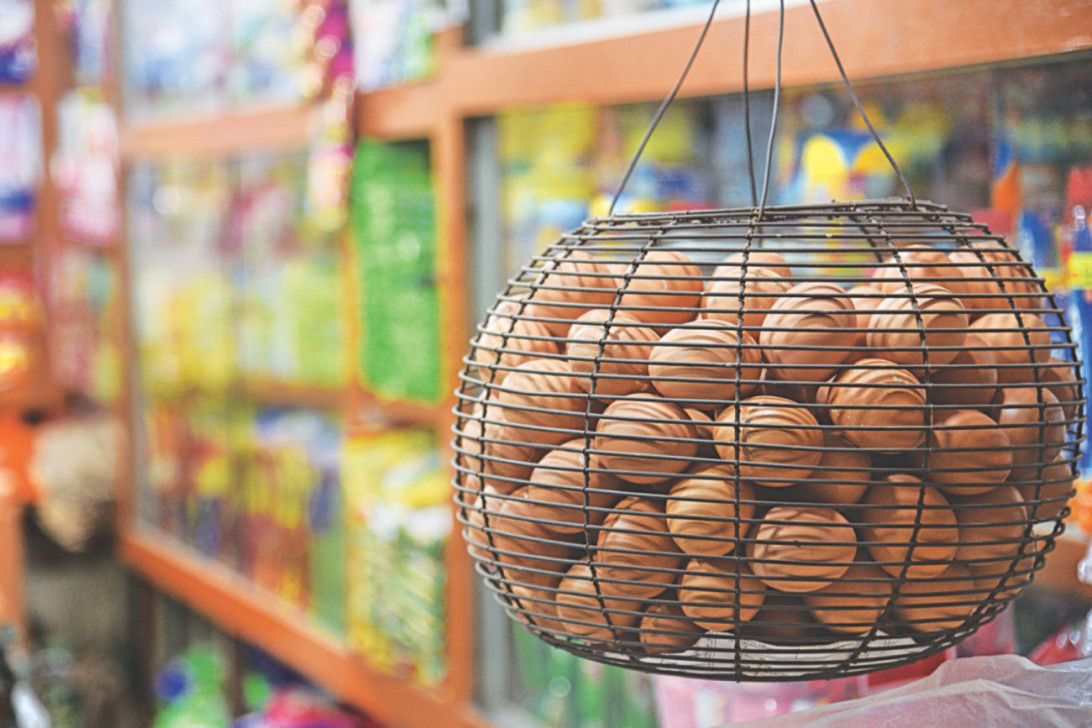Desire’s ripple effects and economic fallout

At the break of dawn, when crows start cawing and people are out for a new working day, we usually see some unprivileged people sleeping on foot overbridges or footpaths. Every night, they dream of having a roof over their heads and wake up in a reality instead, where they struggle to manage the bare minimum essentials for themselves and their family. Luxurious items are far from their thoughts as their days are spent with the challenge of meeting the basic needs of every day.
It is often said that a person is as great as their dreams. Since dreams and desires are often related to income, they grow as people's income increases. So desires changes with a person's social classes. For instance, the aspirations of the middle class aren't limited to just having a roof over their heads or leading a simple life. They yearn for well-furnished homes, healthy and balanced diets, a touch of luxury and the comfort of a better standard of living. On the other hand, the dreams of the upper class are more ambitious. They constantly seek to elevate their lifestyles to unprecedented heights.
While the saying goes "money makes the world go round," it's more accurate to say that desire is the engine that fuels the economic machine. Our wants and needs create demand for goods and services, and unchecked desire can also be a root cause of inflation. The upper-class people tend to have a desire for luxury goods and the market of such goods thrives on their desire for exclusivity and status. Their spending habits create a ripple effect. Their lifestyles and use of exclusive items fuel a desire for similar consumption among their peers. The affluent people's ability and willingness to spend significantly impact the market demand. Factories scramble to keep up as demand explodes beyond their capacity. This demand-pull inflation is a classic desire in action. With everyone chasing a limited supply, sellers can raise prices as buyers are willing to pay more to satisfy their needs.
The extravagant purchases of the affluent—luxury cars, designer clothing, exclusive vacations—create an influence on others to emulate their lifestyle, and consequently, push up prices in these sectors, impacting everyone, not just the elite. Eventually, this creates a significant burden for ordinary citizens, particularly those struggling to meet their basic needs. The middle class, who may have previously been able to afford a comfortable standard of living, might find themselves squeezed as necessities become costlier. It not only widens the gap between the rich and the poor but also makes it harder for everyone to maintain a decent quality of life. A striking example of this phenomenon can be seen in Bangladesh's wedding culture, which has become a symbol of social status. Affluent families compete to host grand ceremonies featuring lavish decorations, designer outfits, and multi-day events at upscale venues. The "desire trap" here stems from societal pressure and social media influence, pushing middle-class families to take loans or exhaust savings to meet these rising standards.
Our desires can also indirectly cause inflation by impacting the cost of production. Let's consider the rising global coffee obsession. This drives up the demand for coffee beans, pushing their price higher. To maintain profit margins, coffee roasters might have to raise their prices. This cost-push inflation highlights how our wants can ripple through the production chain, ultimately affecting what we pay at the store.
However, it is important to remember desire is a powerful force in economics, shaping both inflation and innovation. Our insatiable curiosity and desire for improvement have driven innovation throughout history. The craving for faster communication led us to the Internet, and the pursuit of a healthier lifestyle fuelled the fitness craze.
Striking a balance between ambition and the risks of unchecked greed is crucial. Without mindful management of desires and consumption habits, even the most well-crafted monetary policies or global strategies to reduce class gaps will remain ineffective. Central banks must act prudently, and society must rethink values around wealth and status to ensure stability, fostering policies that balance sustainable growth with humanity's drive for improvement.
Samira Tasnim is research associate at the Bangladesh Institute of Governance and Management (BIGM). She can be reached at samira.tasnim@bigm.edu.bd.
Views expressed in this article are the author's own.
Follow The Daily Star Opinion on Facebook for the latest opinions, commentaries and analyses by experts and professionals. To contribute your article or letter to The Daily Star Opinion, see our guidelines for submission.




 For all latest news, follow The Daily Star's Google News channel.
For all latest news, follow The Daily Star's Google News channel. 

Comments